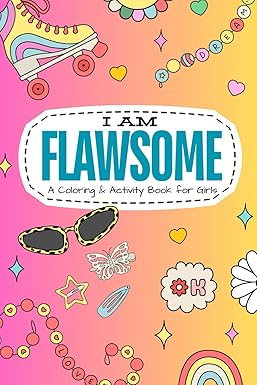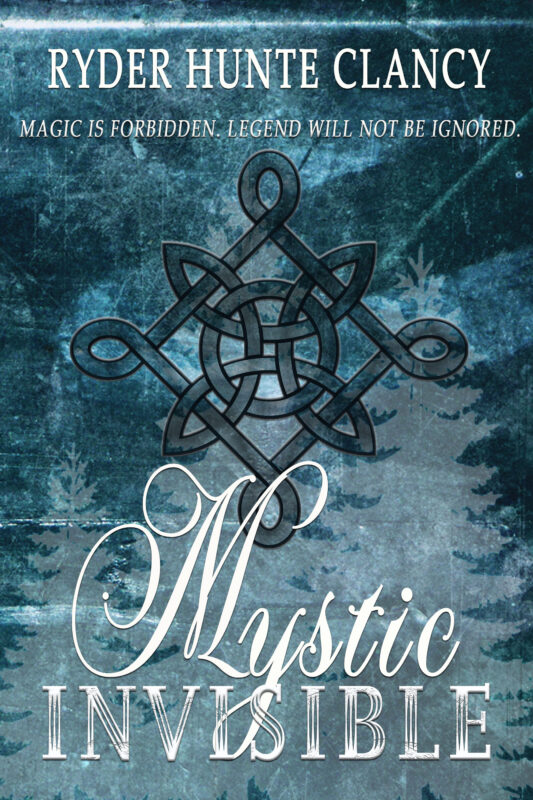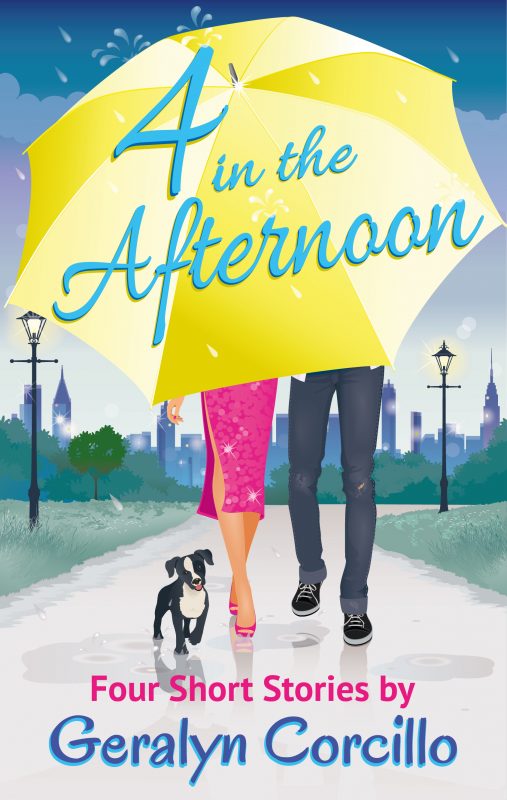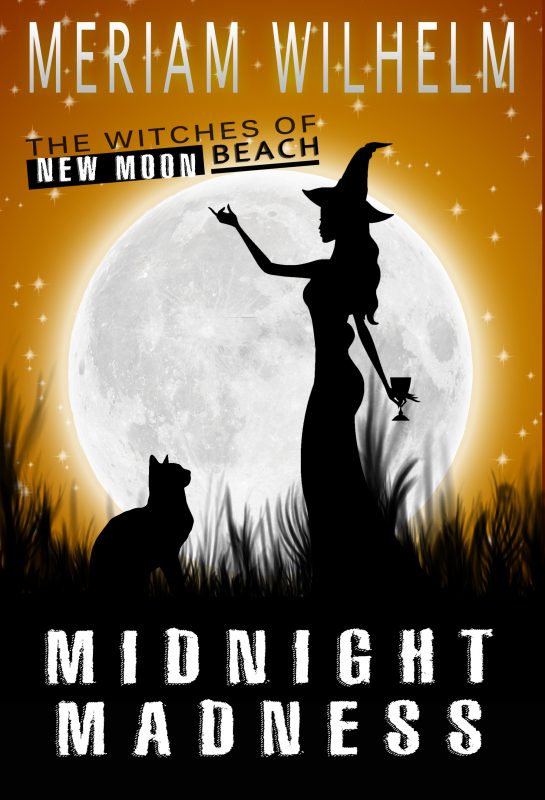Mortality
July 13, 2020 by Bethlehem Writers Group in category From a Cabin in the Woods by Members of Bethlehem Writers Group tagged as birthdays, Families, Larry L. Deibert, Mortality

Larry Deibert has written fourteen books.
He is a Vietnam veteran and is the past president of the Lehigh Northampton Vietnam Veterans Memorial in Macungie, Pa. Larry retired from the U.S. Postal Service in 2008 after working as a letter carrier for over 21 years. He and his wife, Peggy, live in Hellertown, Pa., where he enjoys reading and writing.
Larry’s website is www.larryldeibert.com.
You can contact Larry at larrydeibert@rcn.com. Signed copies of Larry’s books may be purchased directly from the author.
Today, July 13th, 2020, is my 73rd birthday and I my topic is mortality. I have gotten farther along in my years than I ever thought I would, and this subject really hit me last August.
I took my son to a ball game on his 42nd birthday. Around the eighth inning he said, “Dad, I’m 42 and you’re 72. In 8 years, I’m going to be 50 and you’re going to be 80! What do you think you would like for your 80th birthday?” Without hesitation, I replied, “I’d like to be alive.” I think he was stunned, but I cannot honestly say that I’ll attain that lofty age. I hope I do, and in reasonably good health.
In my life I have done many things that I would never have thought possible when I was younger. I graduated from high school and business school. I went into the army, served in Vietnam, and survived. I married the mother of my two kids. When I was 39 and a half, I lost a great paying job and became a letter carrier, retiring after nearly 22 years in 2008. I helped to create a Vietnam memorial, a lasting tribute to the 126 men from Lehigh and Northampton counties lost during that war, and a place for all veterans to be honored.
In 1974, when I found out I was going to be a dad, I decided to write a book about my limited army experiences, in case Agent Orange would take my life before my children would know me. 23 rejections later, I gave up, and didn’t write again for 25 years. Since 1999, I have written and self-published fourteen books and I am currently working on a rewrite of my first vampire novel.
I think we try to guess how long we might live, based on the lifespans of our parents and siblings. Unfortunately, my mom was 71 and my dad was 76 when they died. My sister is still going strong a month and a half before her 82nd birthday, so I would certainly like to walk in her longevity shoes. One of my mother’s sisters died at 37, and her brothers died at 75 and 92. My dad’s brothers and sisters lived long lives, except for a brother who committed suicide when he was late forties; PTSD from WWII. Studying all the numbers can be overwhelming, and only God knows how long I will live, so I just try to do my best every day.
Since Covid-19 has become a part of all our lives, I hope I am fortunate to not become a statistic, having many more years to write and to watch my two grandchildren grow up. We had not seen our grandkids since March 8th, but on June 28th, we finally had the opportunity to visit with them. Seeing how much they had changed in over one-hundred days was remarkable. Cody, who turned two on July 1st, had learned more words. He had grown a little in our absence. Avery, now five and a half, talked like there was no tomorrow, and she had become so pretty while we were quarantined from them. She read out loud to me for the first time. Those are moments I will never forget. Oh, Avery was our Christmas present in 2014, being born around six PM in the evening. We had hoped that Cody would be born on July 4th, giving us two holiday grandkids, but that didn’t quite work out.
I am so lucky to be retired and able to travel with my wife, Peggy. Every year we go to Wrightsville Beach, North Carolina, and over the eighteen years I have known her we have traveled to England and Scotland, Seattle, California and Hawaii, and perhaps more places in the future. Travel or do whatever you enjoy as often as you can, because if you put off that trip or project until next year, next year may never come. There is way too much to do and see in this world, even if your world does not extend as far as mine has. I don’t have a bucket list on paper, but I know some of the places I want to see. I want to go to Texas to see my Cowboys play and stand in the shadow of the Alamo. I would like to see a baseball game in St. Louis, and we would someday love to go to Wales.
Do not take a single day for granted and don’t let anyone tell you that you can’t do something without even trying.
2 0 Read moreIn the Judgment Seat
May 13, 2020 by Bethlehem Writers Group in category From a Cabin in the Woods by Members of Bethlehem Writers Group tagged as constructive criticism, critiques, short story contest

From a Cabin in the Wood’s is a column featuring authors from the Bethlehem Writers Group. Writing for us this month is Dianna Sinovic.
Born and raised in the Midwest, Dianna Sinovic has also lived in three other quadrants of the U.S. She writes short stories and poetry, and is working on a full-length novel about a young woman in search of her long-lost brother.
In the Judgment Seat
The Bethlehem Writers Group, one of the writers groups I’m in, sponsors an annual short story contest for all non-members, and the members do much of the judging—the first cuts, the semifinalist round, and the finalists. Once the finalists are selected, a guest judge (an author outside the organization) makes the final call on the rankings of first, second, and third.
Each story is judged by three people, using a templated rubric, with the two highest scores determining whether the story makes it to the semifinalist category. Sometimes the same story can accrue widely divergent scores. How could three readers have such different reactions? That difference of opinion explains why sometimes the debates the group has on which stories come out on top are quite heated.
I’m often amazed at the creativity of some of the entrants, but also always disappointed in others. I think—if only the author had done X, Y or Z, the results would have been much more satisfying or made more sense.
It’s also instructive to see how often an entry lacks a story arc. Even if a story is short and basically just one scene, it still needs a beginning, middle and end, with a goal in mind for the main character. Author Juliet Marillier said that stories with no proper ending also don’t make the cut when she judges.
It’s also interesting to see that some authors submit pieces that are mostly likely memoir. This can work if the personal account contains the essence of a good story, with that needed arc and depth of character/emotion, but many often don’t.
How the theme is approached is also eye opening. We choose a new contest theme every other year. This year’s topic was animals; it didn’t matter what kind of animal or how many, but an animal had to play an important part in the story. I read tales that featured insects, cats, horses, dogs, sea animals, and reptiles, some good, some not so good. With research only a browser click away, I was discouraged at how often writers didn’t do their homework when trying to depict animal behavior.
Of course, it’s much easier for me to see the flaws in other people’s works than in mine.
Each year’s judging process serves as a reminder to always ask others to read my work and offer their feedback, to let me know where my stories fall short so I can further revise.
Sweet, Funny, and Strange Anthologies Featuring Stories From The Bethlehem Writers Group’s Short Story Award
The 2020 Short Story Award
April 23, 2020 by Bethlehem Writers Group in category From a Cabin in the Woods by Members of Bethlehem Writers Group tagged as 2020 Short Story Award, Bethlehem Writers Roundtable Short Story Award, Fur Feather & Scales, Peter Abrahams, Spencer Quinn
It’s time!
The 2020 Short Story Award
Deadline is April 30th!
Bethlehem Writers Roundtable seek animal stories (broadly interpreted) of 2000 words or fewer.
First Place winner will be considered for publication in their newest “Sweet, Funny, and Strange” anthology:
Fur, Feathers, & Scales: Sweet, Funny, and Strange Animal Tales
The latest of their “Sweet, Funny, and Strange” Anthologies
See Submission Guidelines
The 2020 Guest Judge

Peter Abrahams is the Edgar Award winning author of thirty-eight novels including The Right Side, The Fan, A Perfect Crime, and the Echo Falls series for younger readers.
Under his pen name, Spencer Quinn, he writes the New York Times best-selling Chet and Bernie series, as well as the Queenie and Arthur series for younger readers.
Abrahams was born in Boston, graduated from Williams College, and lives on Cape Cod.
You read an interview of Mr. Abrahams here.
Previous BWR Short Story Award Judges
2012–Jonathan Maberry
2013–Hank Phillippi Ryan
2014–Rebecca Forster
2015–Curtis Smith
2016–Marisa A. Corvisiero
2017–Carrie Vaughn
2018–Kimberly Brower
2019–John Grogan
To submit a story
0 0 Read moreChallenges of Writing on the Road
April 13, 2020 by Bethlehem Writers Group in category From a Cabin in the Woods by Members of Bethlehem Writers Group, Writing tagged as finding time to write, Making time to write, writing
I’ve been writing for a lot of years. It started somewhere in my corporate career when the girls were little, with short stories I’d read to them for birthdays and holidays. First book I’d written began as a story to celebrate my oldest daughter’s 12th birthday. That’s when the muse came a calling, and next I know, the story was over 300 words. It had all the faux pas of a newbie, repeating words, passive voice, minimal sensory and bad spelling (didn’t have spellcheck in those days). I had it bound as a hard copy, gold lettering for the title – cost me a fortune back then, but it was worth it. She liked it so much; I wrote a sequel of similar length. It is still one of my daughter’s most precious possessions.
The muse took up residence, and it wasn’t to be denied. With a job that had me boarding planes weekly, how was I supposed to satisfy the writing urge? Weekends were out. That was family time—and chores—and honey-dos—and kid’s events . . . I learned to access time slots while a prisoner of an airplane (seats were bigger then) and forgo watching hotel television at night (there wasn’t anything worth watching anyway). Can’t write on a plane anymore unless in first class. Coach seating is a sardine tin where we’re all a little heavier, the tray table might fit a drink glass with a deck of cards, and the seat in front of me is maybe ten inches from my nose.
At home, I’ve got the writing cave and silence, where the muse happily homesteads, ready to fill my thoughts with new directional themes. When I’m traveling, almost always with my wife/kids/grandkids/siblings, it’s a non-stop cornucopia of distractive activity, surrounded by the din of fellow humans. The muse had become accustomed to the safe zone of my writing cave and doesn’t appreciate the competition for my attention. No sooner do I sit down at the laptop, somebody calls my name.
Why don’t I write at night like I used to, when things quiet down? Unlike many writers who thrive on burning the midnight oil, I have become a morning writer. The muse is fresh, unfettered by the noise of life. Skipping the cocktail hour might help, but it’s the only time my wife and I convene to compare notes of the day, eat dinner, then wait for the daily Facetime call from kids who are on western time (grandboys are rather insistent I take part). When traveling, I’m expected to be participative, and young folk participate after work. By the time it all ends, the muse “has left the building”.
So, what’s a morning writer to do? For short trips, I might do some editing, or compose a few notes of the current project, which is kind of aggravating for the muse and I. We’re both hardcore pantsers. Plotting gives us hives. On the long winter forays where we’re domiciled near the kids out west, I go in search of a quiet haven. Local library is a good start, but it’s best to know when toddler reading hour is scheduled. Last time I went, a little nose-miner saddled up to me while I was typing, begging to crawl in my lap. It’s enough to instill fear in today’s times. We rent a condo when visiting mother down south. Most have nice gathering areas that nobody uses in the morning. Again, awareness of scheduling is important. The local women’s club du jour might show up, ask a lot of embarrassing questions, then seduce me to join them. Last year’s rental had a front-row seat at the ladies seventh-hole tee box. All day long, whack—thump—followed by ample cussing. And to think many of them were grandmothers.
I may go days, or weeks, writing nothing meaningful. I grab whatever opportunity arises. When I return to the word processor, the muse is waiting with a head shake and impatient foot-tapping, but ready to rock. Booting up after a long absence, the magic is even more special. I guess the saying: “absence makes the heart grow fonder”, works for us writers as well.

DT Krippene is a contributing author in the recent BWG’s paranormal anthology, Untethered (available below). A man buys a house for a price that is too good to be true, until he discovers the bizarre strings attached in “Hell of a Deal”. He’s also contributed articles for the Bethlehem Round Table Magazine with “Snowbelt Sanctuary”, and “In Simple Terms”.
A native of Wisconsin and Connecticut, DT Krippene deserted aspirations of being a biologist to live the corporate dream and raise a family. After six homes, a ten-year stint in Asia, and an imagination that never slept, his annoying muse refuses to be hobbled as a mere dream. Dan writes dystopia, paranormal, and science fiction. His current project is about a young man struggling to understand why he was born in a time when humans are unable to procreate and knocking on extinction’s door.
You can find DT on his website, and his social media links.
3 0 Read more
The 2020 Short Story Award
March 13, 2020 by A Slice of Orange in category From a Cabin in the Woods by Members of Bethlehem Writers Group tagged as 2020 Short Story Award, Bethlehem Writers Roundtable Short Story Award, Fur Feather & Scales, Peter Abrahams, Spencer Quinn
It’s time!
The 2020 Short Story Award is now open!
Bethlehem Writers Roundtable seek animal stories (broadly interpreted) of 2000 words or fewer.
First Place winner will be considered for publication in their newest “Sweet, Funny, and Strange” anthology:
Fur, Feathers, & Scales: Sweet, Funny, and Strange Animal Tales
The latest of their “Sweet, Funny, and Strange” Anthologies
See Submission Guidelines
The 2020 Guest Judge

Peter Abrahams is the Edgar Award winning author of thirty-eight novels including The Right Side, The Fan, A Perfect Crime, and the Echo Falls series for younger readers.
Under his pen name, Spencer Quinn, he writes the New York Times best-selling Chet and Bernie series, as well as the Queenie and Arthur series for younger readers.
Abrahams was born in Boston, graduated from Williams College, and lives on Cape Cod.
You read an interview of Mr. Abrahams here.
Previous BWR Short Story Award Judges
2012–Jonathan Maberr
2013–Hank Phillippi Ryan
2014–Rebecca Forster
2015–Curtis Smith
2016–Marisa A. Corvisiero
2017–Carrie Vaughn
2018–Kimberly Brower
2019–John Grogan
To submit a story
0 0 Read moreAffiliate Links
A Slice of Orange is an affiliate with some of the booksellers listed on this website, including Barnes & Nobel, Books A Million, iBooks, Kobo, and Smashwords. This means A Slice of Orange may earn a small advertising fee from sales made through the links used on this website. There are reminders of these affiliate links on the pages for individual books.
Search A Slice of Orange
Find a Column
Archives
Featured Books
4 IN THE AFTERNOON
Dates, dogs, football, monsters in the attic, misunderstandings, and unexpected discoveries abound in these four romantic comedy short stories.
More info →ILONA’S WOLF
Imagine a world filled with magic, a tormented knight, a damsel in distress, an evil sorcerer...
More info →MIDNIGHT MADNESS
As if Olivia Merriman doesn’t have enough to do in her beloved town of New Moon Beach, now her grouchy great-grandmother has recruited her to head up their coven of witches; her sisters are miffed, the coven is pushing her to accept the job, and to top it all off an evil wizard is messing with her love life.
More info →Newsletter
Contributing Authors
Search A Slice of Orange
Find a Column
Archives
Authors in the Bookstore
- A. E. Decker
- A. J. Scudiere
- A.J. Sidransky
- Abby Collette
- Alanna Lucus
- Albert Marrin
- Alice Duncan
- Alina K. Field
- Alison Green Myers
- Andi Lawrencovna
- Andrew C Raiford
- Angela Pryce
- Aviva Vaughn
- Barbara Ankrum
- Bethlehem Writers Group, LLC
- Carol L. Wright
- Celeste Barclay
- Christina Alexandra
- Christopher D. Ochs
- Claire Davon
- Claire Naden
- Courtnee Turner Hoyle
- Courtney Annicchiarico
- D. Lieber
- Daniel V. Meier Jr.
- Debra Dixon
- Debra H. Goldstein
- Debra Holland
- Dee Ann Palmer
- Denise M. Colby
- Diane Benefiel
- Diane Sismour
- Dianna Sinovic
- DT Krippene
- E.B. Dawson
- Emilie Dallaire
- Emily Brightwell
- Emily PW Murphy
- Fae Rowen
- Faith L. Justice
- Frances Amati
- Geralyn Corcillo
- Glynnis Campbell
- Greg Jolley
- H. O. Charles
- Jaclyn Roché
- Jacqueline Diamond
- Janet Lynn and Will Zeilinger
- Jaya Mehta
- Jeff Baird
- Jenna Barwin
- Jenne Kern
- Jennifer D. Bokal
- Jennifer Lyon
- Jerome W. McFadden
- Jill Piscitello
- Jina Bacarr
- Jo A. Hiestand
- Jodi Bogert
- Jolina Petersheim
- Jonathan Maberry
- Joy Allyson
- Judy Duarte
- Justin Murphy
- Justine Davis
- Kat Martin
- Kidd Wadsworth
- Kitty Bucholtz
- Kristy Tate
- Larry Deibert
- Larry Hamilton
- Laura Drake
- Laurie Stevens
- Leslie Knowles
- Li-Ying Lundquist
- Linda Carroll-Bradd
- Linda Lappin
- Linda McLaughlin
- Linda O. Johnston
- Lisa Preston
- Lolo Paige
- Loran Holt
- Lynette M. Burrows
- Lyssa Kay Adams
- Madeline Ash
- Margarita Engle
- Marguerite Quantaine
- Marianne H. Donley
- Mary Castillo
- Maureen Klovers
- Megan Haskell
- Melanie Waterbury
- Melisa Rivero
- Melissa Chambers
- Melodie Winawer
- Meriam Wilhelm
- Mikel J. Wilson
- Mindy Neff
- Monica McCabe
- Nancy Brashear
- Neetu Malik
- Nikki Prince
- Once Upon Anthologies
- Paula Gail Benson
- Penny Reid
- Peter Barbour
- Priscilla Oliveras
- R. H. Kohno
- Rachel Hailey
- Ralph Hieb
- Ramcy Diek
- Ransom Stephens
- Rebecca Forster
- Renae Wrich
- Roxy Matthews
- Ryder Hunte Clancy
- Sally Paradysz
- Sheila Colón-Bagley
- Simone de Muñoz
- Sophie Barnes
- Susan Kaye Quinn
- Susan Lynn Meyer
- Susan Squires
- T. D. Fox
- Tara C. Allred
- Tara Lain
- Tari Lynn Jewett
- Terri Osburn
- Tracy Reed
- Vera Jane Cook
- Vicki Crum
- Writing Something Romantic
Affiliate Links
A Slice of Orange is an affiliate with some of the booksellers listed on this website, including Barnes & Nobel, Books A Million, iBooks, Kobo, and Smashwords. This means A Slice of Orange may earn a small advertising fee from sales made through the links used on this website. There are reminders of these affiliate links on the pages for individual books.




















































